ReOPEN project short – term joint staff training event C1
October 2 – 6, 2017
Venue: ONECO
Staff from consortium institutions will be trained on how to design non-formal open learning curriculum, apply digital badges and prepare for recognition of open learning in formal education settings
AGENDA
October 1, 2017
ReOPEN project partners arrive in Seville.
October 2, 2017. Non-formal open learning curriculum designing, VMU, ESCB.
| 9:00 – 9:30 | Welcome and ice breaking activities. ONECO. All participants of the training session. |
| 9:30 – 10:30 | Introduction to ReOPEN project and training sessions. Airina Volungevičienė, VMU. Registration of participants to ICT portal for training week. Danutė Pranckutė, VMU. |
| 10:30 – 11:00 | Tea/ Coffee break |
| 11:00 – 12:00 | Unit 1. Introduction to Open learning. Matthias Murawski , ESCB Assignment 1. Discussion or activity in international groups. |
| 12:00 – 13:00 | Unit 2. Non-formal open learning curriculum characteristics. Margarita Teresevičienė, VMU Assignment 2. Non-formal open learning course description (Activity for national groups) |
| 13:00 – 14:00 | Lunch |
| 14:00 – 15:15 | Unit 3. Designing learning plan for non-formal open learning. Margarita Teresevičienė, VMU Assignment 3. Preparing learning plan (Activity for national groups). |
| 15:15 – 16:15 | Group work presentation. Discussion. |
| 16:15 – 17:00 | Quality assurance criteria for non-formal open learning course peer reviewing. Airina Volungevčienė, VMU. Open questions and opening up of reflective teacher collaborative document. |
| 17:00 – … | Get together social event. All participants bring a small piece to taste and to introduce socio-cultural specialties. |
| The end of the day. All participants will be provided with the recommendations for the dinner, but will decide on their own whether to have a joint dinner or not. |
October 3, 2017. Application of Digital Badges. EDEN, SRCE.
| 9:00 – 9:30 | Unit 1. Concept of (open) digital badges Topic 1: Introduction to the concept of digital badges Topic 2 Digital badge metadata Ferenc Tátrai, EDEN Reflective questions and Assignment 1.1 |
| 9:30 – 10:00 | Unit 2. Elements of the digital badge ecosystem – actors and roles Topic 1: The digital badge ecosystem Topic 2: The value of using digital badges for the different stakeholders Sandra Kucina Softic, SRCE Reflective questions |
| 10:00-10:30 | Group work 1: Create examples of implementation of digital badges in non-formal online environment. Identifying benefits for each group of stakeholders. Sandra Kucina Softic and Sabina Rako, SRCE |
| 10:30 – 11:00 | Tea/ Coffee break. |
| 11:00 – 11:30 | Group work 2: Stakeholder analysis of applying digital badges Krisztina Mihályi, EDEN Presentation. Discussion. |
| 11:30-12:30 | Unit 3 Digital badge design for open non-formal learning Topic 1: Tools to support Open badge design Topic 2: Creating and issuing badges using the available open badge infrastructure Krisztina Mihályi and Ferenc Tátrai, EDEN Reflective questions |
| 12:30-13:00 | Group work 3: Creating badge strategy using the the badge canvas, Krisztina Mihályi EDEN |
| 13:00 – 14:00 | Lunch (joint) |
| 14:00 – 14:45 | Group work 4: Design the visual image of a badge using the badge designer tool available on https://www.openbadges.me/ Ferenc Tátrai, EDEN Presentations. Discussion. |
| 14:45 – 15:30 | Unit 4 Use of open badges and its integration into a non-formal course curriculum Topic 1. Granularity and stackability Topic 2: Learning pathways, challenges and opportunities Topic 3: Examples of digital badge system implementations in non-formal online environment Sabina Rako, SRCE |
| 15:30-16:30 | Reflective question: The future of alternative credentials Discussion Sabina Rako and Irena Jandric, SRCE |
| 18:00 – 20:00 | The end of the day. All participants will be provided with the recommendations for the dinner, but will decide on their own whether to have a joint dinner or not. |
October 4, 2017. Recognition of non-formal open learning results in formal curricula. Q21, VMU.
| 9:00 – 10:30 | Introduction to concept of recognition of open learning Objectives: know the topic, terminology and relevance, anticipate benefits, potentials and pre-conditions, presentation of good exemplary initiatives (Unit1) J. Busche, Q21 – Welcome and introduction of trainer and programme of the day – Presentation of concept, underlying ideas and objectives, terms and state of the art/good practices Assignment 1: Discussion round: assessing learners knowledge and motivation, clarify open questions, exchange of experiences |
| 10:30 – 11:00 | Tea/ Coffee break. |
| 11:00 – 13:00 | Recognition of open learning in formal curricula – What does it need and how to get there? Objectives: Understand steps to recognition, introduction of traffic light model, know aspects to elaborate (curriculum, procedures, quality, sustainability), if time also presentation of exemplary approaches – Presentation: Introducing the traffic light model, in the context of recent research; – Presenting training material and discussing it in regard to upcoming task. Identification of needs preconditions for afternoon assignment; – Deepening selected aspects, e.g. assessment, depending on participants needs; Assignment: Part 1: group discussion – needs for recognition in your institution, which assets and challenges do you see. Who are relevant target groups? Which actors in your organization have to become involved? Part 2: Create Mindmap in working groups per organization and elaborate possible workflow to create an open learning offer with recognition potential. |
| 13:00 – 14:00 | Lunch (joint) |
| 14:00 – 15:30 | Group work: Developing recognition scenarios for HE and CPD Objectives: transferring theory to practice oriented scenarios as exemplary cases, identifying critical points (is there a template?) – Presentation of scenarios for recognition within and outside of HE – Excurse: CPD through open learning – practices and challenges |
| 15:30 – 16:00 | Group work presentation. Discussion/focus group along leading questions. |
| 16:00 – 16:30 | Individual work on design and assessment of international online group work |
| 16:30 – 17:00 | Wrap up, questions, outlook, feedback |
October 5, 2017. ICT platform for non-formal open learning curriculum designing. VMU.
| 9:00 – 9:30 | Overview and feedback of participants. Discussion. |
| 9:30 – 10:30 | Learners identity in ICT platform Danutė Pranckutė, Marius Šadauskas, VMU. |
| 10:30 – 11:00 | Tea/ Coffee break. |
| 11:00 – 13:00 | Realization of competence based learning Assignment 1. Creating competences in the ICT platform. |
| 13:00 – 14:00 | Lunch (joint) |
| 14:00 – 15:00 | Learning progress tracking Danutė Pranckutė, Marius Šadauskas, VMU. |
| 15:00 – 17:00 | Digital badges in ICT platform Danutė Pranckutė, Marius Šadauskas, VMU. Assignment 2. Creating digital badges in the ICT platform. |
| The end of the day. All participants will be provided with the recommendations for the dinner, but will decide on their own whether to have a joint dinner or not. |
October 6, 2017. ICT platform for non-formal open learning curriculum designing. VMU.
| 9:00 – 9:30 | Overview and feedback of participants. Discussion. |
| 9:30 – 11:00 | Designing your curriculum according to course concept in ICT platform: course structure, course description, learning plan, learning outcomes, activities, quizzes, assignments. Danutė Pranckutė, Marius Šadauskas, VMU. |
| 11:00 – 11:30 | Tea/ Coffee break. |
| 11:30 – 13:00. | Learning agreement realization for your course. Danutė Pranckutė, Marius Šadauskas, VMU |
| 13:00 – 14:00 | Lunch |
| 14:00 – 16:00 | Feedback from the training week, ideas for the future |
| 16:00 – 17:00 | Certificates, recognitions, further collaboration and farewell. |
| The end of the training week. All participants will be provided with the recommendations for the dinner, but will decide on their own whether to have a joint dinner or not. |

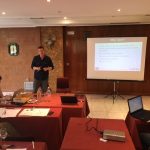
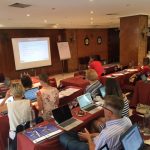
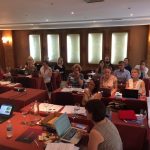
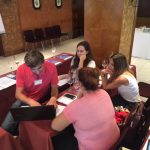
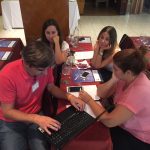
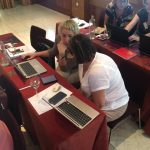
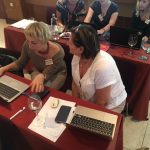
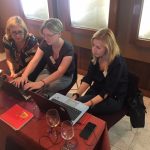
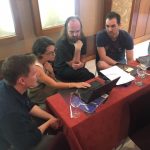
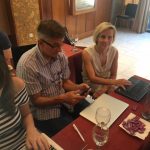
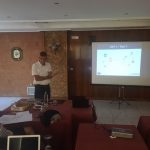
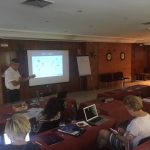
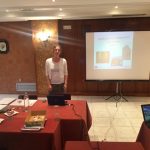
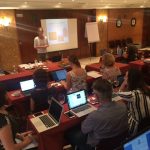
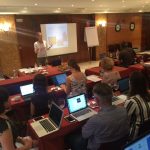
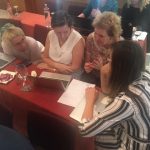
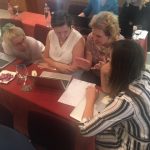
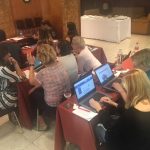
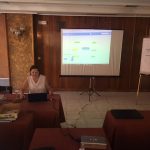
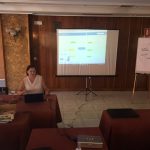
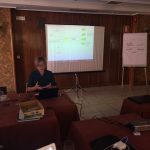
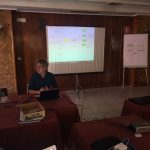
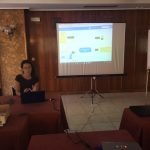
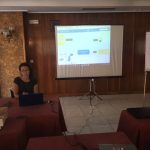
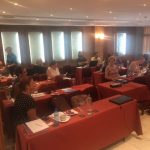
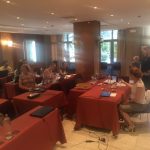
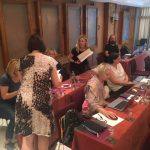
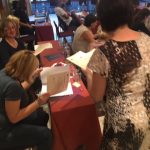
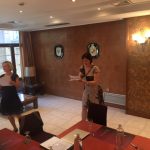
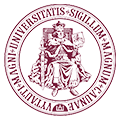
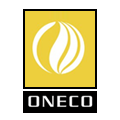
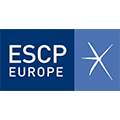
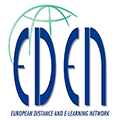
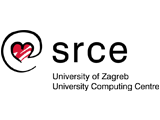
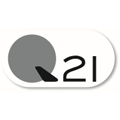
 Project No. 2016-1-LT01-KA202-023131″
Project No. 2016-1-LT01-KA202-023131″